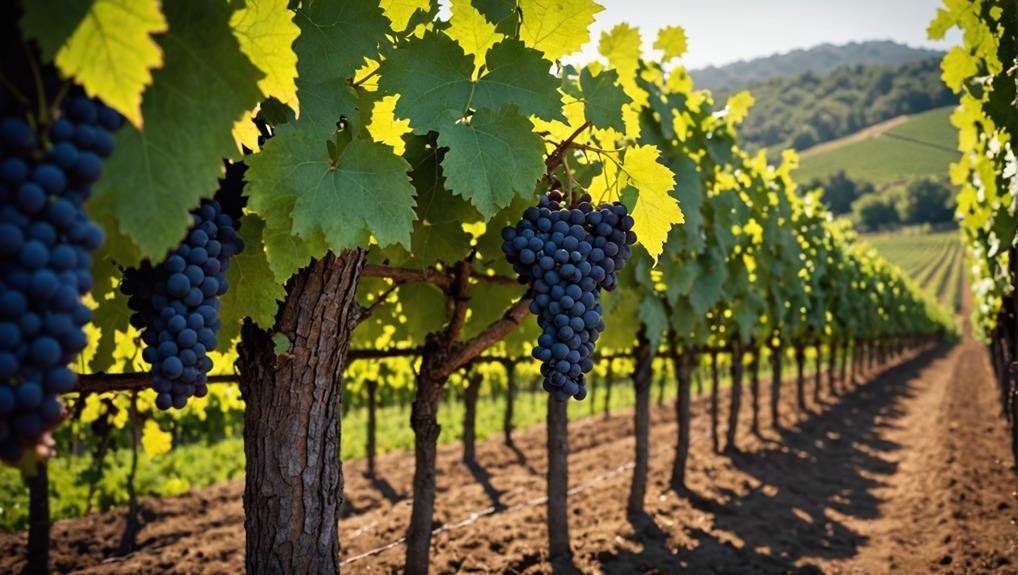Organic grape wines are a beautiful blend of tradition and innovation, offering a delightful sensory experience while promoting health and sustainability. The shift towards organic winemaking has not only transformed the industry but also redefined how we enjoy wine.
With each sip, the flavors on your palate narrate a story of change and mindful decisions. In a world where every choice matters, organic grape wines encourage us to not just drink but also support a greener future through our consumption.
Health Benefits of Organic Grape Wines

Organic grape wines offer health-conscious consumers a choice that prioritizes purity and natural processes. These wines are made without the use of harmful chemicals, genetically modified yeasts, or glyphosate, ensuring a cleaner end product with reduced sulfites.
By focusing on the natural essence of the grapes, organic winemaking delivers a potentially healthier option for wine lovers concerned about their well-being. The stringent organic certification standards guarantee that the final product is free from unwanted additives, giving consumers peace of mind about the quality and integrity of their wine selection.
Choose organic grape wines for a natural and wholesome drinking experience.
Environmental Advantages of Organic Wines
The shift towards organic grape wines brings significant environmental benefits beyond the vineyards. Opting for organic wines supports practices that enhance soil, water, air, and wildlife quality.
Notably, organic grape farming can help boost Monarch butterfly populations by avoiding harmful chemicals. Despite facing challenges like higher annual costs and lower yields, the long-term positive impacts on the environment are substantial.
Here are the environmental advantages of choosing organic wines:
- Enhances soil, water, air, and wildlife quality
- Potential increase in Monarch butterfly populations
- Higher annual farming costs associated with organic farming
- Reduced yields due to minimized chemical usage
Supporting Organic Grape Growers

Supporting organic grape growers is vital for promoting sustainable agricultural practices and eco-friendly wine production. When consumers opt for organic grape wines, they can directly influence the industry by encouraging farmers to adopt organic farming methods.
By incorporating organic options, even for everyday wines, consumers can motivate more farmers to embrace sustainable practices. This shift not only benefits the environment but also prioritizes the health and well-being of consumers.
Through increased demand for organic grape wines, a significant transformation can be sparked within the wine industry, leading to a more sustainable and environmentally conscious approach to grape cultivation and winemaking. It is crucial for wine enthusiasts to actively support organic grape growers to drive positive change in the industry.
Frequently Asked Questions
Do Organic Grape Wines Taste Different From Conventional Wines?
Organic grape wines don't have a distinct taste compared to conventional wines. Studies have shown that any perceived taste differences are not real. Both organic and conventional wines look, taste, and are priced similarly. Opting for organic wines can benefit your health, the environment, and the livelihood of farmers. It's a choice that supports sustainability and well-being.
Are Organic Grape Wines More Expensive Than Regular Wines?
Choosing organic grape wines is a budget-friendly option compared to regular wines, dispelling myths about their high costs. When you support organic vineyards by purchasing these wines, you encourage sustainable farming practices that lead to a shift towards healthier and more eco-friendly choices in the wine industry. It's a small step that can make a big difference in promoting a more sustainable future for our planet.
How Do Organic Grape Wines Contribute to Wildlife Conservation?
Choose organic grape wines to support wildlife conservation efforts. These wines are produced using organic farming methods that enhance soil, water, and air quality, potentially aiding in the increase of Monarch butterfly populations. By opting for organic grape wines, you encourage farmers to adopt sustainable practices that benefit wildlife and the environment. Making this choice can have a positive impact on conservation efforts and promote a healthier ecosystem for all species to thrive.
Can Organic Grape Wines Be Stored for Long Periods?
Organic grape wines can be stored for extended periods when kept in the right conditions. Factors such as consistent temperature, humidity, and darkness play a crucial role in the aging process. It's important to note that organic wines, which contain lower levels of sulfites, may have a shorter shelf life compared to traditional wines.
Are Organic Grape Wines Available in a Variety of Flavors?
Organic grape wines offer a wide array of flavors, providing a distinct sensory journey. From refreshing whites to bold reds, vineyards that focus on organic practices craft a diverse selection of wines to suit various tastes and occasions.
Conclusion
In summary, choosing organic grape wines provides a sustainable and healthy option for consumers concerned about their well-being and the environment.
By supporting organic grape farmers, we can contribute to a cleaner and greener future while enjoying a more natural wine experience.
Each glass of organic grape wine not only offers a distinct flavor but also helps drive positive change in the wine industry towards more eco-friendly practices.
Here's to a healthier and more environmentally conscious future!